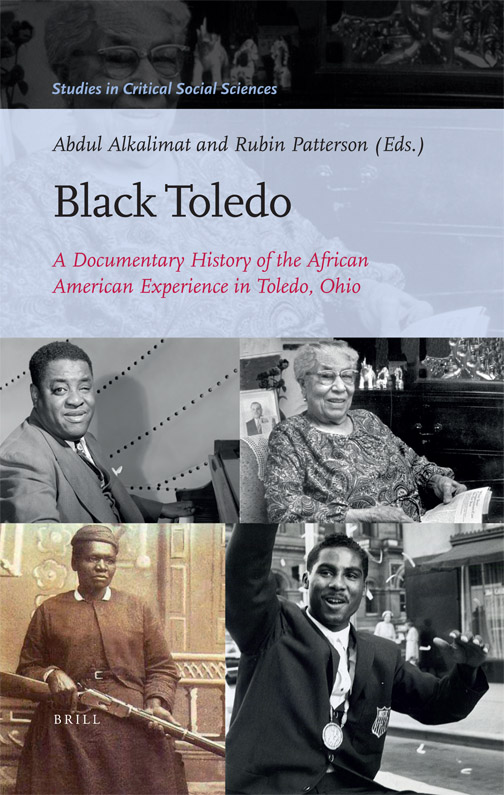Dr. Rubin Patterson will return this week to campus and a city he called home for more than two decades.
“I really enjoyed my time at The University of Toledo,” said Patterson, professor and chair of sociology and criminology at Howard University. “I learned a lot about the city.”
So when a colleague he met while at UT contacted him about a book project focusing on the black experience in the Glass City, he was all in.“Black Toledo: A Documentary History of the African-American Experience in Toledo, Ohio” was published by Brill in November as a hardcover and will be published as a paperback by Haymarket Books in December.
Editors Patterson and Dr. Abdul Alkalimat, professor emeritus of African-American studies at the University of Illinois at Urbana-Champaign, pored over documents to chronicle more than 200 years of African-American struggles for a better life in Toledo. With newspaper articles, academic papers, census data and popular writings about Toledo, the two pieced together the story of African-American organizations, institutions, events and individuals confronting oppression and other challenges.
Patterson will talk about “Black Toledo” Wednesday, Feb. 28, at 6 p.m. in Law Center Room 1002. The free, public event is hosted by the Africana Studies Program and the College of Arts and Letters in honor of Black History Month.
“We are very happy to welcome back Rubin to talk about this landmark book,” Angela M. Siner, director of anthropology and the UT Africana Studies Program, said.
 The 317-page book is divided into four sections: the origin of the black community, 1787 to 1900; the formation of community life, 1900 to 1950; community development and struggle, 1950 to 2000; and survival during deindustrialization, 2000 to 2016.
The 317-page book is divided into four sections: the origin of the black community, 1787 to 1900; the formation of community life, 1900 to 1950; community development and struggle, 1950 to 2000; and survival during deindustrialization, 2000 to 2016.
“Abdul led a team that originally worked on the project for a few years, then it laid dormant for a time, then I worked on it off and on a few years,” Patterson said. “After moving to Washington, D.C., in 2014 and looking back on my Toledo experience and taking stock, I realized that I wanted to leave something concrete that could continue doing for years to come what I had done the previous two decades, namely, to educate UT students and the Toledo public.
“With that mindset, I took charge of the project and brought it to a soft landing with the publication. We now leave this book as part of the UT Africana Studies legacy and contribution to Toledo and to scholarship,” Patterson said. “The years-long effort has resulted in the type of book that my wife and I wished we would have had access to when we first moved to Toledo in 1992. We would have better understood the city and its black community from the beginning.”
From the Underground Railroad to Frederick Douglass and Sojourner Truth speaking in Toledo in 1864, neighborhood segregation to fighting the Ku Klux Klan, the musical genius of natives Art Tatum and Jon Hendricks to the Hines Farm Blues Club, Black Panthers patrolling Dorr Street and the proliferation of African-American businesses, to memorable moments of boxer Wilbert “Skeeter” McClure who won a gold medal in the Olympics in Rome and legendary UT quarterback Chuck Ealey who led the Rockets to a 35-0 record from 1969 to 1971, “Black Toledo” has it all.
“Readers will obviously come away with a better understanding of the black experience in Toledo, but black Toledoans will have a better appreciation for the rich legacy that they have inherited and of which they are a part,” Patterson said.
Alkalimat also played a historic role: He was the first director of the Africana Studies Program at the University in 1996. He was a faculty member at UT from 1995 to 2007. Patterson, who worked with student leaders in the early 1990s to convince UT administrators to create Africana Studies, then served as director of the program from 2007 to 2014.
“It was an honor and a privilege to serve as director of the UT Africana Studies Program, and it delights my heart to know that I have contributed to a book that memorializes Toledo’s black experience for all to better appreciate,” Patterson said.